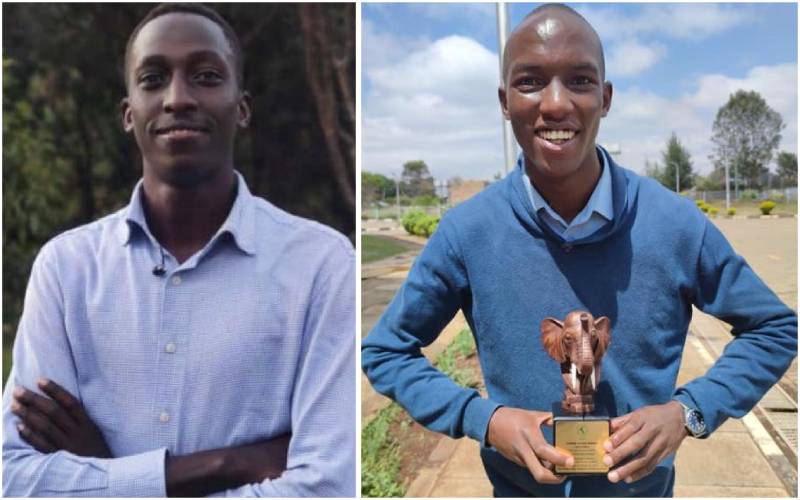×
The Standard e-Paper
Fearless, Trusted News

Egerton University students Joseph Nguthiru and Charles Kinyua. [File, Standard]
When two Egerton University students got stuck in a motorboat in Lake Naivasha alongside their colleagues during a field trip, little did they know the incident would birth an idea that would earn them global fame.